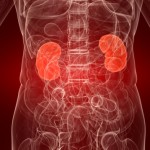Kidney Urology and Nephrology
 Kidney the Study in Nephrology and Urology
Kidney the Study in Nephrology and Urology
Your kidneys provide a critical function for your daily life. If you’ve ever suffered from renal failure, kidney stones, renal insufficiency, or any other urological issues, you know the extreme value of Urologists and Nephrologists–physicians who specialize in all issues pertaining to your kidneys. The comparison of these two medical specialties is quite common, as there is much overlap between the study of Nephrology and Urology.
The Greek word “nephros” means “kidney,” with the “neph” in nephrology relating to the makeup and function of the kidneys. There are millions of nephrons in the kidneys that work together as a blood filter and regulator of water and soluble substances (i.e., sodium). Retaining and reabsorbing needed substances, in addition to, excreting excess substances or potentially releasing harmful substances through urine, are the kidney’s primary purpose.
Kidney Specialists: The Basics
Nephrologists and Urologists often work in concert to diagnose and treat an individual suffering from problems related to their urinary tract. Urology is one of the most competitive specialties for physicians to enter. Learn more about the differences between these types of Kidney Specialists following Kidney Forum and Condition links below.
 Kidney Condition Forums: The great news in the area of Kidney Specialists is that there are some very advanced medical procedures available to diagnose and treat kidney conditions and renal issues. These options provide a less invasive approach that may equate to less downtime and enhanced recovery for those who qualify.
Kidney Condition Forums: The great news in the area of Kidney Specialists is that there are some very advanced medical procedures available to diagnose and treat kidney conditions and renal issues. These options provide a less invasive approach that may equate to less downtime and enhanced recovery for those who qualify.
Robotic Surgery: What’s the Advantage?
On the Watch List for Prostate Cancer? Prevent Anxiety and Depression.
Peyronie’s Disease– Relief with Enzyme Treatment? Relief from curved and occasionally painful erections, as well as, varying degrees of sexual dysfunction, emotional distress and depression may be accomplished with a less invasive approach.
- Cannabis Use Lowers Bladder Cancer Risks? Study offers interesting findings.
- Hope for the Future of Quality Donor Organs
- The Connection: Pelvic Pain and The Pill
- Three Dimensional Imaging Technology Takes the Potential Discomfort and Downtime Out of Renal Scans
Kidney Conditions, Diagnostic Tools and Treatment
With kidney ailments, people often complain of pronounced pain and discomfort. Still, there are select times that a kidney condition does not produce symptoms, but may be damaging over time without screening for kidney conditions, such as offered in ultrasound for UPJ Obstruction in recent years during the fetal stage of development which may accurately screen for UPJ Obstruction in select individuals. Laboratory blood and urinalysis tests may diagnose what is going on in the body’s complex filtering and elimination system. Twenty-four hour urine collection samples are common in identifying kidney issues. Although the more immediate spot urine tests for protein and Creatinine levels have gained popularity and usefulness in diagnostic efforts. More targeted and specialized tests may uncover Hepatitis B and C, forms of Lupus, or various contributing factors to systemic diseases. These disease states may result in kidney disorders and failure, including: amyloidosis or multiple myeloma. Therefore, it’s wise to know when you may be referred to a Kidney Specialist. Select medical conditions include:
- Bladder Infection
- Chronic Kidney Disease
- Erectile Dysfunction
- Kidney Cancer
- Kidney Disease, as it relates to high Creatinine levels and root causes for declining kidney function.
- Kidney Failure
- Kidney Infection
- Kidney Stones
- Overactive Bladder
- Renal Artery Disease
- UPJ Obstruction
- Urinary Tract Infections, whether first time, recurrent or chronic
- Vasectomy
- Electrolyte Disorders
- Bladder Cancer
- Prostate Cancer
- Urinary Incontinence
Other common terms that relate to reasons why one would seek out a Urologist and/or a Nephrologist include, but may not be limited to:
- Proteinuria, signified by loss of protein, particularly albumin
- Imbalance Ph Acid/Base Imbalances
- Hypertension that hasn’t responded to medication
- Blood in the urine, also known as hematuria
The Kidney Specialty Differences
Nephrologist: A Nephrologist has completed their residency in General Internal Medicine and then sub-specialized as a Kidney Specialist. A primary focus of a Nephrologists is the study of chronic kidney disease, end stage renal disease, management of dialysis patients, low sodium level treatment, management of uric acid counts as related to gout, and management of the kidney as it pertains to hypertension.
Urologist: A Urologist specializes in treating all aspects of the urinary system—ureters, bladder, urethra, adrenal glands and for men, the prostate and testicles. Urologists are surgeons that perform surgery and provide medical management in areas that relate to specific urology conditions, such as kidney stones, erectile dysfunction, low testosterone levels, kidney, bladder, and prostate cancer.
Kidney symptoms may be related to other types of medical conditions. Urology is closely related to, and in some cases overlaps other medical areas, including:
· Endo-Urology: The use of small cameras and instruments inserted into the urinary tract, involving minimally invasive surgical procedures. This discipline allows for the entire urinary tract to be reached and treated, and is important for surgeries of the prostate; removal of tumors, kidney stones and other obstructions; or other simple procedures.
· Laparoscopy: This is a growing part of urological practices. A majority of prostate surgeries are conducted by laparoscopy.
· Urologic Oncology: The treatment of malignant genitourinary diseases through surgery, affecting the prostate, kidneys, bladder, ureters, adrenal glands, penis, and testicles.
· Neuro-Urology: Focuses on the treatment of abnormal urination that is often associated with disease or physical injury.
· Pediatric Urology: Involves the treatment of children’s urologic disorders. Such conditions may include developmental and abnormality issues surrounding the genitals and urinary system.
· Andrology: Focus on the male reproductive system–infertility, erectile dysfunction and ejaculation problems. Vasectomy reversals, hormone treatment, fertilization procedures, and other procedures fall into this specialty realm.
· Reconstructive Urology: The Repair or replacement of damaged or cancerous ureters or the bladder, by surgery.
· Female Urology: The focus of overactive bladder, urinary incontinence, and pelvic organ prolapse. Prescription drug therapy or surgical procedures have successfully treated these prevalent issues in women, that come often as a result of multiple childbirths or age.
· Oncology: Urologists and Oncologists may work together when cancer is found in this region.
Your Health Access Alert for Urology Care
Access to urological care may be limited from now through 2050, according to study results presented at the 108th Annual Scientific Meeting of the American Urological Association (AUA). Learn more about what you may be up against and what you may do to help soften the burden by clicking on the link, such as reducing out of pocket Costs for UTI Emergency Room Visits.
Medical Insurance Considerations
It is particularly important for people with Renal health issues to be aware that insurance companies typically approve initial diagnostic testing but may have a waiting period before a secondary test can be performed. For this reason, it is important for people with kidney issues to pursue diagnostic testing at the first sign of discomfort. If your insurance company will not approve additional tests, it is recommended that you pursue the diagnostic testing if you feel it is necessary and submit bills to your insurance company later. An appeals process may be necessary. However, early intervention care may be lifesaving in select cases.
Next Visit, Q and A For Your Doctor
It is important to recognize that all information contained on this website cannot be considered to be specific medical diagnosis, medical treatment, or medical advice. As always, you should consult with a physician regarding any medical condition. Your Health Access disclaims any liability for the decisions you make based on this information.






